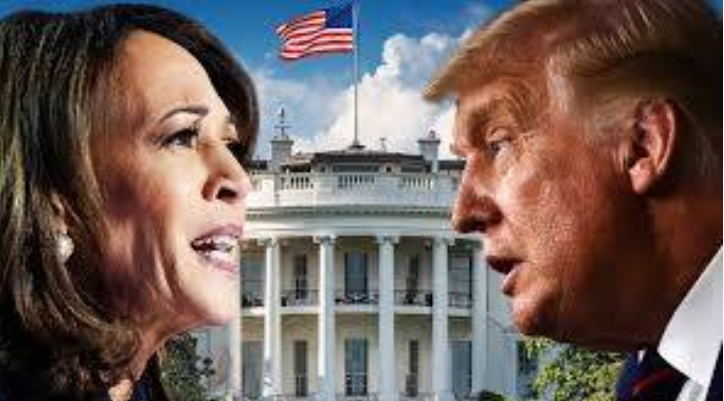Washington (Web Desk): As the US presidential election heats up, the world is watching closely—not just to see who will lead America, but how their victory could reverberate across the globe, particularly in countries like Pakistan.
The central question in Pakistan right now is: What would a second term under Donald Trump mean for Pakistan-US relations, and how would Kamala Harris as president shape America’s approach to Islamabad?
To answer this, two crucial factors must be considered: the foundational elements of Pakistan-US ties and the foreign policies each candidate is likely to pursue, particularly on matters that directly affect Pakistan.
At the heart of the longstanding Pakistan-US relationship are issues of security and Afghanistan.
For decades, much of Pakistan's interaction with the US has been framed within the context of the war in Afghanistan and counterterrorism efforts. The situation has evolved, but Afghanistan remains a focal point for both nations.
In recent years, under the Biden administration, US foreign policy has placed increased emphasis on strengthening ties with India, particularly in South Asia. This pivot has raised concerns in Islamabad, as it may signal a more challenging environment for Pakistan as it seeks to maintain its strategic position in the region.
On the economic front, the United States continues to play a pivotal role in Pakistan’s economy.
The US is a major trade partner, with nearly one-fifth of Pakistan's exports heading to American markets. Furthermore, the US holds significant influence in global financial institutions like the International Monetary Fund (IMF), where its stance on loans and financial assistance can have a profound impact on Pakistan’s fiscal health.
Additionally, the Pakistani diaspora in the US is a crucial factor in the bilateral relationship. With a large and growing number of Pakistanis living in the US, issues like immigration and visa policies are of deep concern. As millions of Pakistanis navigate the complexities of US immigration laws, they are keenly interested in how a new administration might alter policies affecting their ability to bring family members to America or secure long-term residency.
For Pakistanis abroad, the presidential election carries particular weight, especially given the significant outflow of Pakistani migrants in recent years.
Over the last five years, an estimated 3.3 million Pakistanis have moved abroad, many of whom consider the US a top destination. The policies on visas, green cards, and family reunification could change dramatically depending on who takes the White House.
The outcome of this election could be decisive for the millions of Pakistanis who want to see their relatives join them in the US or for those contemplating migration.
With the electoral race too close to call, it is difficult to predict with certainty which candidate would be more favourable to Pakistan's interests.
Donald Trump’s foreign policy, characterized by an "America First" approach, may signal a focus on bilateral, security-driven engagements, possibly at the expense of multilateralism or global cooperation.
In contrast, Kamala Harris may emphasize diplomacy and engagement with allies, potentially leading to a more nuanced approach to Pakistan.
Regardless of the outcome, it is clear that US foreign policy and domestic politics will remain a central concern for Pakistan in the coming years.
Whether under the leadership of Kamala Harris or after a second term for Donald Trump, the nature of Pakistan-US relations will continue to evolve, with major implications for trade, security, and the future of the Pakistani diaspora in America.


